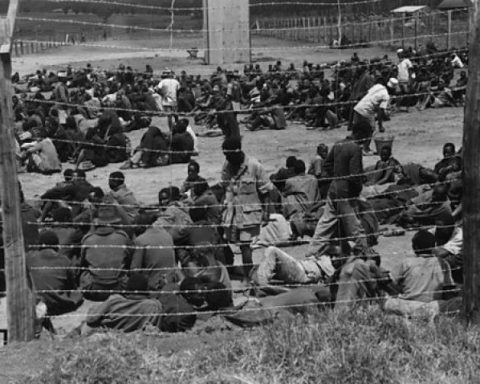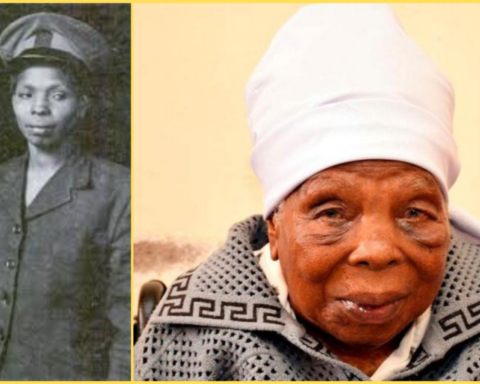With its rich red fertile soil, Kericho county, in the highlands of the Rift Valley was a prime location for the British enslavers when they arrived. It is one of the top locations for tea production in the world. It is therefore the home of the world’s biggest tea brands like Uniliver Tea, Lipton, Finlays, and Williamson’s Fine Tea.
These multinational companies entered Kenya during the colonial era and continue to generate billions of dollars in profit from their farms in Kericho county, while the original owners of these lands are condemned to poverty. How is this even possible in 2023?
What is happening in Kericho county is just one of the examples of the lingering effects of colonial-era land grabs. Between 1895 and 1950, tens of thousands of acres of land belonging to the Kipsigis and Talai clans were forcefully and brutally grabbed by the British Royal Army and handed over to Wazungu farmers.
The Kipsigis and the Talai were brutally murdered and evicted to make way for the current thriving tea plantations that were set up by the white settlers. Today, Kericho continues to be one of the world’s top producers giving tea to Europe while making millions in terms of profit for the multinational companies operating in the county.
Some of the hundreds of thousands of Kenyans living as squatters in their own country are a reminder and a pointer to the British colonial administration’s brutality. Kenyans were forcefully removed by the British Army under the instruction of the colonial administration from their own rich lands to unproductive, arid, disease-prone native reserves.
The land grab in Kenya by white enslavers began in the 20th century and accelerated by the 1920s with the British East Africa Disabled Officers Colony (BEADOC). It was a scheme for injured white war veterans to acquire 25,000 acres of farmland in Kenya. During the brutal eviction in Kericho and other parts of Kenya, homes were burnt down, women were raped, men were beaten and victims were tortured.
The remaining Talai of Kericho – numbering around 700 people – were then banished to Gwassi in Homa Bay County, where they suffered, and some died from 1934 – 1962 due to lack of food and a means to survive, malaria, attacks by wild animals, and other diseases. Those who survived are currently settled in ramshackle and pens in Kablilo, Sigowet-Soin, Kiptere, Ainamoi, Belgut, and even Emgwen.
Sadly, as we speak today, white farmers still own the land after close to 60 years of ‘Independence’. British agricultural companies holding 99-year leases on grabbed Kericho county land include Brooke Bond (bought by Unilever), James Finlay (now owned by Swire), and Williamson Tea.











